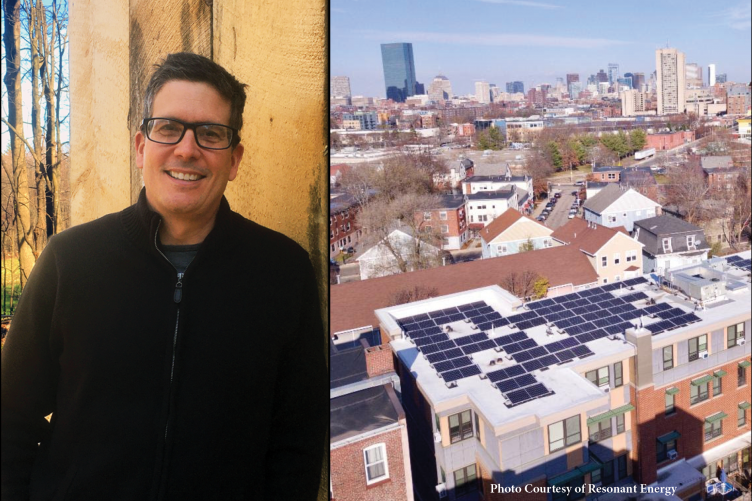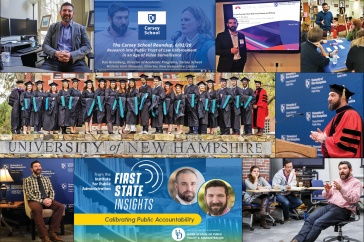
In July, the Environmental Protection Agency (EPA) announced 30 new and returning members to its Environmental Financial Advisory Board (EFAB). Among them was Eric Hangen, senior research fellow at the Carsey School’s Center for Impact Finance and faculty member at the Carsey School.
EFAB provides ideas and advice to the EPA's Administrator and program offices on ways to lower the costs of and increase investments in environmental and public health protection.
“Eric Hangen is a perfect choice to serve on the EPA’s Environmental Financial Advisory Board,” said Michael Swack, Director of the Carsey School Center for Impact Finance. “He brings deep expertise, experience, and passion to environmental issues addressing low- and moderate-income communities.”
“Eric Hangen is a perfect choice to serve on the EPA’s Environmental Financial Advisory Board,” said Michael Swack, Director of the Carsey School Center for Impact Finance. “He brings deep expertise, experience, and passion to environmental issues addressing low- and moderate-income communities.”
Hangen has decades of experience researching the economics of community development. He has written extensively on scalable, eco-friendly development for low-income communities. In his most recent publication through the Carsey School, Clean Energy Project Development for Low-Income Communities: Strengthening the Ecosystem for Delivering Solar Energy and Deep Efficiency Retrofits, Hangen reviews examples of the work different organizations are doing in niches of clean energy development.
Commenting on his appointment to EFAB, Hangen said, "I'm excited to bring perspectives from the Center for Impact Finance's work in community development finance to help the EPA address climate equity issues faced by low-income and underserved communities around the country."
"I'm excited to bring perspectives from the Center for Impact Finance's work in community development finance to help the EPA address climate equity issues faced by low-income and underserved communities around the country."—Eric Hangen
A key principle in Hangen’s work at Carsey is that environmental and economic sustainability are tied intrinsically to the wellbeing of communities. He has proven through research and practice that environmental and economic sustainability need not be at odds with one another and can be achieved while uplifting communities that have been historically left behind.
As a faculty in the Master in Community Development program at the Carsey School, Hangen has taught students about the economic factors involved in effective community development, so that they can use that knowledge to uplift their communities and enable brighter futures for all. The Carsey School is excited to see those lessons carry over in practice as Hangen advises the EPA.
More about the Environmental Financial Advisory Board
Local communities need to maintain proper infrastructure to provide access to clean drinking water and manage waste with concern for public health and safety. These infrastructure costs can be expensive, and if mismanaged can result in serious risk to public health and the environment.
EFAB operates within the EPA’s Water Infrastructure and Resiliency Finance Center, which advises local communities on water infrastructure maintenance. They offer suggestions to lower the cost of water infrastructure, find funding for facilities and services, and help state and local governments afford to meet environmental standards. EFAB is made up of 30 experts in fiscal and environmental policy, selected from state and local government, the private sector, and non-governmental organizations.
Read more about EFAB’s work -->
Written by Benjamin Hammer



















































